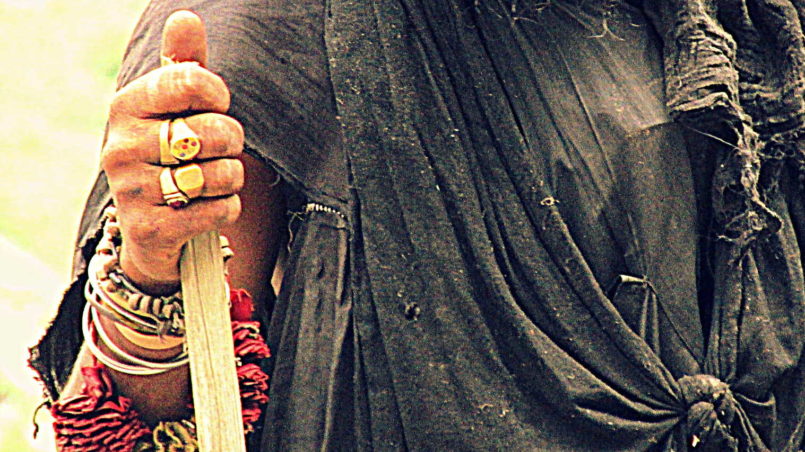The Dilemma of Dharma

Why should one follow the path of being a good human being? What is the point of being good and righteous when it brings a lot of suffering? Why do bad people who indulge in wrongdoings seem to be rewarded while those who choose to be good suffer hardship?
I think these questions have likely entered the minds of almost every human being at some time. The dilemma of unnecessary suffering puts all of us in conflict with our inherent desire to be good human beings. I believe every human being has an intrinsic capacity to be good. And who does not want to be considered and regarded as a good human being?
The answers are obviously not easy and, since time immemorial, philosophers have been trying to find an appropriate answer to such questions. Over time, I started to understand that there is no clear cut answer to such complex questions. Our worldly experiences often lead us to the conclusion that bad people flourish and prosper while goodness is not rewarded generously as well as tangibly in this world. And thus human beings choose to be good or bad according to their own self-interest.
In fact, moral goodness or moral values are based on human self-interest and are followed because of our need to live with others. I think people rarely choose to be good as a duty, without any concern for consequences or rewards. But still consequences matter. Even if the path of goodness is chosen with some expectation of rewards, it is still better than choosing to be bad.
The word Dharma comes from the Sanskrit root “dhr” which means to “support” or “uphold”. Indian philosophers and scholars link the concept of Dharma to Dharana, which means maintaining or supporting the eternal laws of the world.
The word Dharma and the idea that flows from it has evolved over centuries and has been enriched through an intense process of contesting and then adapting it. Various scholars of ancient India interpreted the idea of Dharma differently and eventually moulded it over time.
At one point in time, according to orthodox tradition, the term Dharma was considered as the practice of rituals and the only way to know Dharma was through the Vedas, which are ancient Indian religious scriptures.
But during the nineteenth century, the term Dharma was again interpreted and used to identify the Hindu faith and denoted Hindu Dharma. It is interesting to note that the term Dharma has been continuously contested and so its meaning and significance kept changing over time. The religious connotation was soon contested and the term Dharma was secularized later in the nineteenth century and was interpreted in a humanistic manner. Thus the concept of Dharma began to be understood as conforming to the laws of nature and became an ethical code which is applicable to mankind as a whole, rather than just followers of the Hindu way of life.
We are often told that we should act, not in the hope of any reward for our action, but just because there is a duty to act. In other words, we should act from a deep sense of duty of what we are supposed to do. If we understand this philosophy, then we would understand that following Dharma is its own reward. All questions and grievances regarding the irrationalities of life would stop bothering us. However, it is understandable that it is quite difficult to act in a completely selfless manner, not expecting any reward for our actions.
In this context, I would like to mention the idea of doing that which is good. Is it possible to be a good human being and choose the path of goodness, just because we should be good? Can one ever relinquish the expectation or hope of being rewarded for one’s goodness? Our grievances regarding unfair treatment stem from our expectation of being rewarded for our acts of goodness. Nobody expects to be rewarded for being a bad person. And when we find that, after all our acts of goodness, we are still suffering, we become confused. Our confusion stems from the fact that we understand “karma” much better than the idea of Dharma.
Moreover, an act is also judged based on its consequences or results. This is the utilitarian way of looking at actions. An act is good only if it leads to positive consequences. And an act is bad if its consequences are bad. People also behave with such considerations in mind. Many a times, people choose to be good or engage in a good act with the belief that it will promote the goodness of others. Therefore, one can say that one should act according to Dharma as it has consequences for society as well. Dharma is not only about personal well-being but it is also a way to bring harmony at the level of society.
The actions of humans are usually based on a complex amalgamation of intention and consequentialism. The latter is easy to comprehend and so most people behave, bearing in mind the laws of karma. Focusing on intention, i.e. the desire to be rewarded for our actions, seems more self-centered behavior to many people who get stuck in the quandary of choosing goodness.
But my understanding is that we cannot ever become immune to the irrationalities of life. There is no-one whom we can blame for untoward consequences of our good actions. But I firmly believe that one should be good because it is good to be good. When we choose the path of goodness as an end rather than a means, we need not be concerned with any consequence. We can at least remain immune to the grievances that result when the consequences of our actions are not in tune. Then there will be no difficulty in being good. Then we will never refrain from doing good.
Credits
| Image | Title | Author | License |
|---|---|---|---|
 |
The Dilemma of Dharma | Sumana Singha | CC BY-SA 4.0 |
